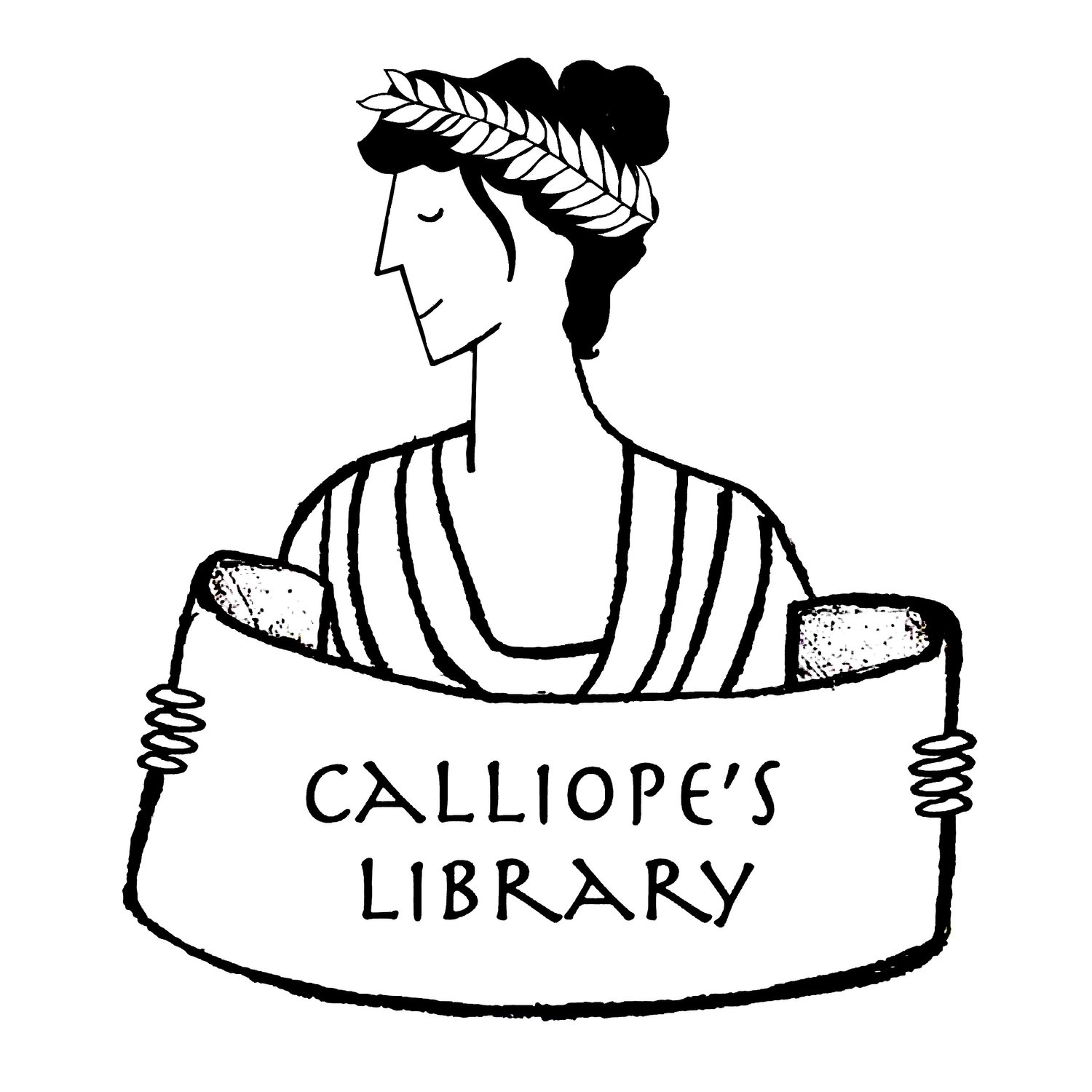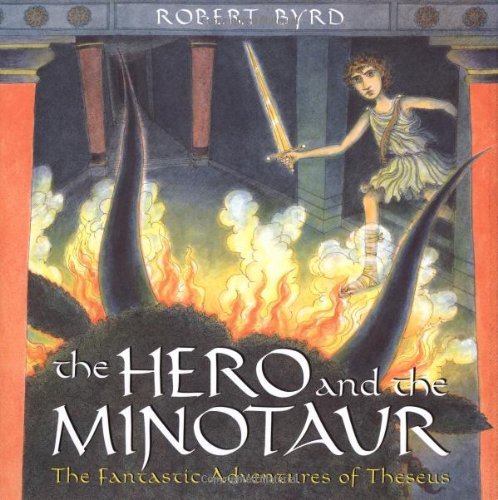Title: The Hero and the Minotaur
Author: Robert Byrd
Date: 2005
Tags: Chapter book, Mythology, Theseus and the Minotaur, Icarus, Talos, Poseidon, Ancient worlds, English
Readers interested in a scholarly approach to children’s literature may consult this title on Our Mythical Childhood Survey*
Robert Byrd retells the myth(s) of Theseus and all the people of Crete in fascinating detail with lavish illustrations inspired by ancient Minoan Art. He somehow manages to include all the intricacies of the myths surrounding Theseus without losing any nuance or including anything that isn’t age appropriate. Poseidon loves Theseus’s mother, which leads him to take a fatherly interest in the young hero. His father Aegeus, on the other hand, is worried that the boy and his mother won’t be safe if they return to Athens with him, so they have to live apart. The illustrations cleverly have Poseidon lurking in the background of many pages, as an outline in the sea’s waves. Equally clever is the visual treatment of the labors of Theseus on the way to Athens to claim his birthright. Byrd lays them out across the page like a pictorial map.
Once Theseus heads to Crete for his most famous adventure, Byrd continues to make the most interesting choices in his storytelling. Ariadne sees Theseus more as a collaborator to help her stop the injustice of the Athenian tribute than as a romantic partner. Her actions make a lot more sense when she’s a freedom fighter rather than a lovesick princess, and Theseus’ decision to leave her on Naxos seems like less of a betrayal. It’s easy to believe that Dionysus would fall in love with such a courageous young woman. Byrd also allows her some time to process her feelings in her new situation. Icarus has more character than he usually gets, and he plays an active part in the narrative. The bronze giant Talus gets a star turn, and the Minotaur is scarier than in many versions of the story. They add an epic quality to the story. Finally, my absolute favorite detail is that Byrd does not forget Theseus’ mother, Aethra. She plays a small but crucial role in the story to resolve one of the biggest plot holes in the myth: how can anyone as reckless as Theseus make a good king?
This is definitely the book for young readers interested in mythology. I recommend it for readers of any age. I recently had a visiting college student come to my Latin final exam to wait for his friends. After an hour of waiting, I gave him a few books to while away the rest of the time. He stuck around for the rest of the session to finish this book, after his friends finished. They had to ask my TA to drag him out of the room. – Krishni Burns
* For further information on the Our Mythical Childhood Survey, please refer to the website of the project “Our Mythical Childhood” [link: http://omc.obta.al.uw.edu.pl/], led by Prof. Katarzyna Marciniak at the Faculty of “Artes Liberales,” University of Warsaw, Poland, with the participation of Bar Ilan University, University of New England, University of Roehampton, University of Yaoundé 1, and other affiliated scholars, within the funding from the European Research Council (ERC) under the European Union’s Horizon 2020 Research and Innovation Programme (grant agreement No 681202).


